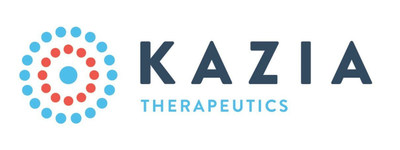Kazia Therapeutics Announces Presentation of Promising Phase I Data Evaluating Concurrent Paxalisib and Radiation Therapy in Patients with Solid Tumor Brain Metastases or Leptomeningeal Metastases Harboring PI3K Pathway Mutations at the American Society for Radiation Oncology 66th Annual Meeting
Rhea-AI Summary
Kazia Therapeutics (NASDAQ: KZIA) presented promising Phase I data at ASTRO 2024 for paxalisib combined with radiation therapy in patients with solid tumor brain metastases or leptomeningeal metastases harboring PI3K pathway mutations. Key findings include:
- 67% partial response rate with 45mg paxalisib and radiotherapy
- Over two-thirds of patients at maximum tolerated dose achieved intracranial response
- Generally well-tolerated treatment
- Proof-of-principle established for molecularly-selected combination studies in radiation oncology
The study suggests this combination therapy could be a viable approach to address tumor radioresistance in patients with PI3K mutations. Discussions for a potential pivotal registration study are ongoing.
Positive
- 67% partial response rate achieved with 45mg paxalisib and radiotherapy
- Over two-thirds of patients at maximum tolerated dose achieved intracranial response
- Treatment was generally well-tolerated
- Established proof-of-principle for molecularly-selected combination studies in radiation oncology
- Potential for a pivotal registration study to evaluate this combination therapy
Negative
- Most common adverse events included nausea, vomiting, and hyperglycemia
News Market Reaction
On the day this news was published, KZIA gained 1.25%, reflecting a mild positive market reaction.
Data tracked by StockTitan Argus on the day of publication.
Treatment with 45mg paxalisib and radiotherapy demonstrated
Over two-thirds of the patients at maximum tolerated dose (MTD) achieved intracranial response which compares favorably to historical response rates for whole brain radiation therapy alone
"The encouraging response rates observed from this Phase 1 study suggests that the concurrent administration of the investigational brain penetrant PI3K inhibitor, paxalisib, in combination radiation therapy appears to be a viable treatment approach for addressing the tumor radioresistance in patients harboring PI3K pathway mutations," said John Friend, M.D., Chief Executive Officer of Kazia Therapeutics. "Additional data, including circulating tumor DNA (ctDNA) from this study will be presented at an upcoming 2024 scientific congress and discussions for a potential pivotal registration study to evaluate this unique combination therapy for patients with PI3K mutant brain metastases are ongoing."
Presentation details: | |
Title: | Multi-Center Phase I Study of Concurrent Paxalisib and Radiation Therapy in Patients with Solid Tumor Brain Metastases (BM) or Leptomeningeal Metastases (LM) Harboring PI3K Pathway Mutations |
Presenter: | Brandon S. Imber, M.D., M.A., Memorial Sloan Kettering Cancer Center |
Abstract | 1094 |
Scientific Session Title: | CNS 4: Brain Mets and LMD |
Session Date/Time: | October 1, 5:15-6:15 PM ET |
Summary Results from Part II of Phase 1 Study
- Concurrent daily administration of paxalisib with brain radiotherapy was generally well-tolerated at a maximum dose of 45 mg per day in advanced solid tumor patients with brain metastases and PI3K pathway mutations;
- The most commonly reported adverse events in the study were nausea, vomiting and hyperglycemia;
- Established proof-of-principle for molecularly-selected, rational combination studies in radiation oncology to assess safety and ultimately efficacy;
- Treatment with 45mg paxalisib and radiotherapy demonstrated a
67% PR; and - Over two-thirds of the patients at MTD achieved intracranial response which compares favorably to historical response rates for WBRT alone.
The Phase 1 study (n=17 evaluable) was a two-part, investigator-initiated trial evaluating the use of paxalisib with radiation therapy for the treatment of patients with PI3K pathway mutation brain metastases from solid tumors. Part I of the study established the MTD of paxalisib in combination with radiation therapy, while also demonstrating promising signs of clinical activity in all nine evaluable patients. Part II was a follow-on expansion cohort to further evaluate safety and efficacy of the MTD (45mg daily) combined with radiation therapy in up to 12 additional patients.
Approximately 200,000 cancer patients develop brain metastases in
About Kazia Therapeutics Limited
Kazia Therapeutics Limited (NASDAQ: KZIA) is an oncology-focused drug development company, based in
Our lead program is paxalisib, an investigational brain-penetrant inhibitor of the PI3K / Akt / mTOR pathway, which is being developed to treat multiple forms of brain cancer. Licensed from Genentech in late 2016, paxalisib is or has been the subject of ten clinical trials in this disease. A completed Phase 2 study in glioblastoma reported early signals of clinical activity in 2021, and a pivotal study in glioblastoma, GBM AGILE, has been completed with presentation of paxalisib arm data expected later in 2024 at a major medical conference. Other clinical trials involving paxalisib are ongoing in brain metastases, diffuse midline gliomas, and primary CNS lymphoma, with several of these trials having reported encouraging interim data.
Paxalisib was granted Orphan Drug Designation for glioblastoma by the FDA in February 2018, and Fast Track Designation (FTD) for glioblastoma by the FDA in August 2020. Paxalisib was also granted FTD in July 2023 for the treatment of solid tumour brain metastases harboring PI3K pathway mutations in combination with radiation therapy. In addition, paxalisib was granted Rare Pediatric Disease Designation and Orphan Drug Designation by the FDA for diffuse intrinsic pontine glioma in August 2020, and for atypical teratoid / rhabdoid tumours in June 2022 and July 2022, respectively.
Kazia is also developing EVT801, a small-molecule inhibitor of VEGFR3, which was licensed from Evotec SE in April 2021. Preclinical data has shown EVT801 to be active against a broad range of tumour types and has provided evidence of synergy with immuno-oncology agents. A Phase I study has been completed and preliminary data was presented at 15th Biennial Ovarian Cancer Research Symposium in September 2024. For more information, please visit www.kaziatherapeutics.com or follow us on X @KaziaTx.
Forward-Looking Statements
This announcement may contain forward-looking statements, which can generally be identified as such by the use of words such as "may," "will," "estimate," "future," "forward," "anticipate," or other similar words. Any statement describing Kazia's future plans, strategies, intentions, expectations, objectives, goals or prospects, and other statements that are not historical facts, are also forward-looking statements, including, but not limited to, statements regarding: the timing for results and data related to Kazia's clinical and preclinical trials, Kazia's strategy and plans with respect to its programs, including paxalisib and EVT801, the potential benefits of paxalisib as an investigational PI3K/mTOR inhibitor, timing for any regulatory submissions or discussions with regulatory agencies, and the potential market opportunity for paxalisib. Such statements are based on Kazia's current expectations and projections about future events and future trends affecting its business and are subject to certain risks and uncertainties that could cause actual results to differ materially from those anticipated in the forward-looking statements, including risks and uncertainties: associated with clinical and preclinical trials and product development, related to regulatory approvals, and related to the impact of global economic conditions. These and other risks and uncertainties are described more fully in Kazia's Annual Report, filed on form 20-F with the SEC, and in subsequent filings with the United States Securities and Exchange Commission. Kazia undertakes no obligation to publicly update any forward-looking statement, whether as a result of new information, future events, or otherwise, except as required under applicable law. You should not place undue reliance on these forward-looking statements, which apply only as of the date of this announcement.
This announcement was authorized for release by Dr John Friend, CEO.
![]() View original content to download multimedia:https://www.prnewswire.com/news-releases/kazia-therapeutics-announces-presentation-of-promising-phase-i-data-evaluating-concurrent-paxalisib-and-radiation-therapy-in-patients-with-solid-tumor-brain-metastases-or-leptomeningeal-metastases-harboring-pi3k-pathway-mutations--302265538.html
View original content to download multimedia:https://www.prnewswire.com/news-releases/kazia-therapeutics-announces-presentation-of-promising-phase-i-data-evaluating-concurrent-paxalisib-and-radiation-therapy-in-patients-with-solid-tumor-brain-metastases-or-leptomeningeal-metastases-harboring-pi3k-pathway-mutations--302265538.html
SOURCE Kazia Therapeutics Limited








